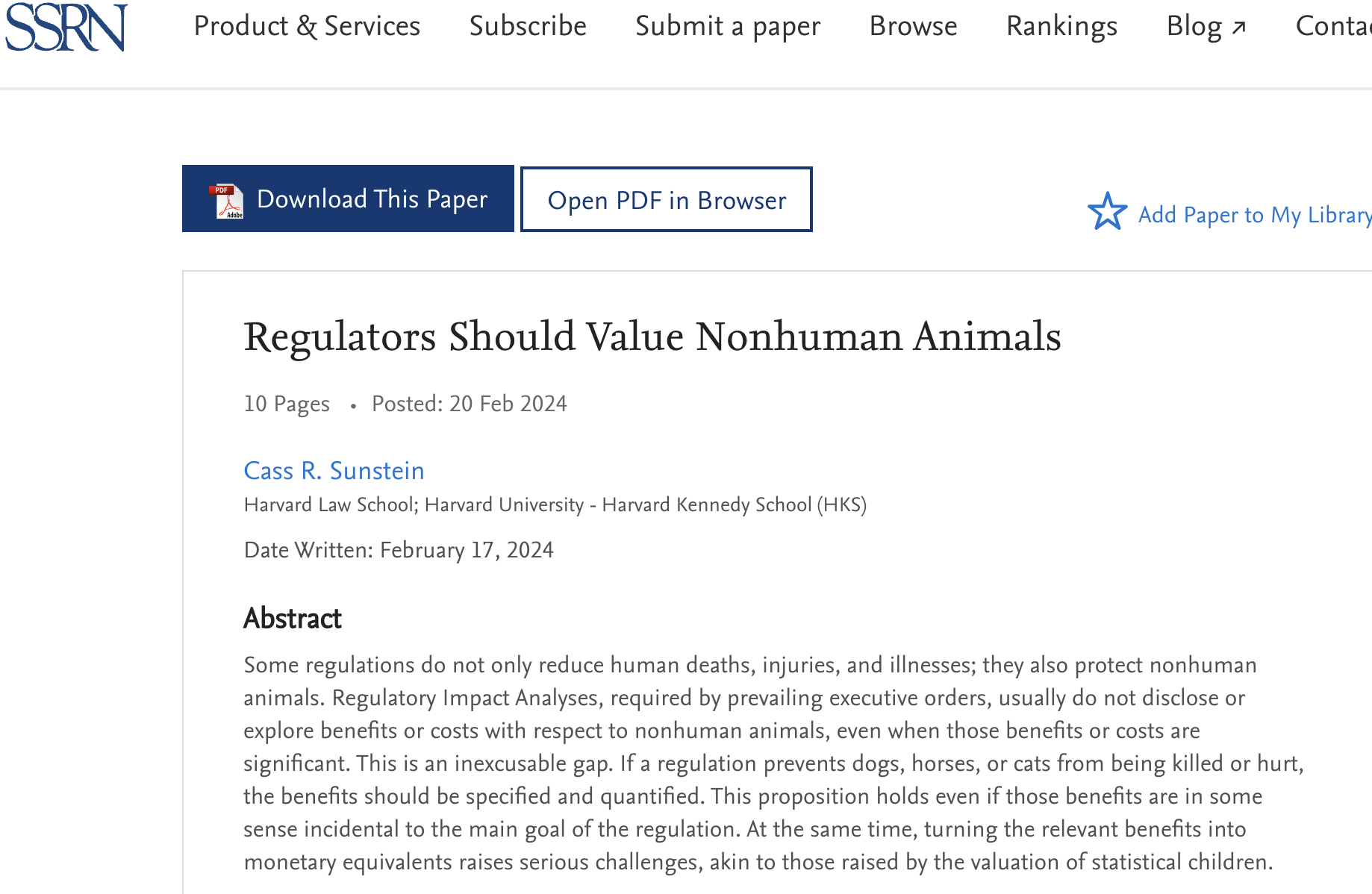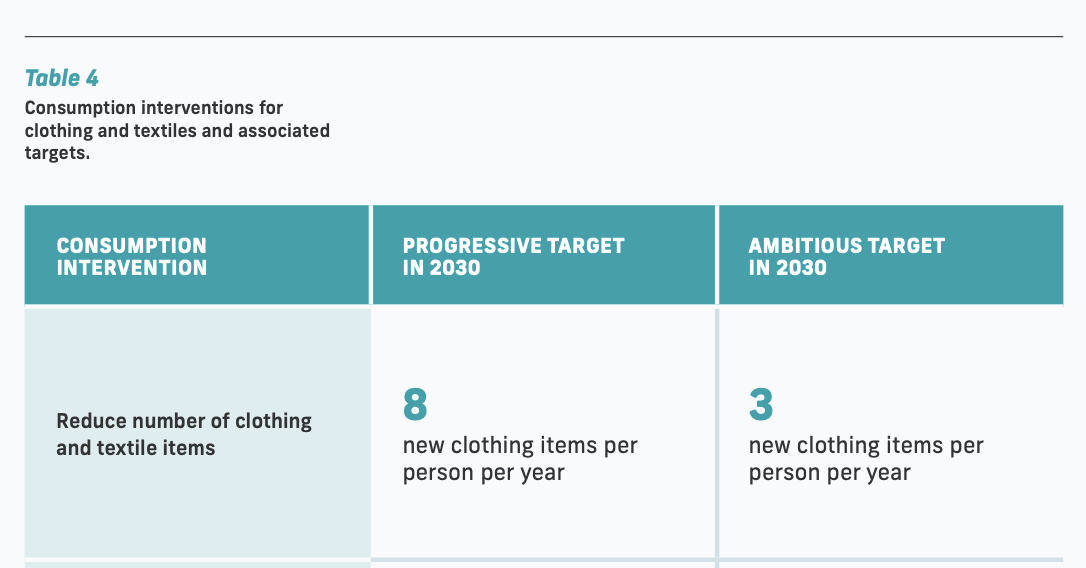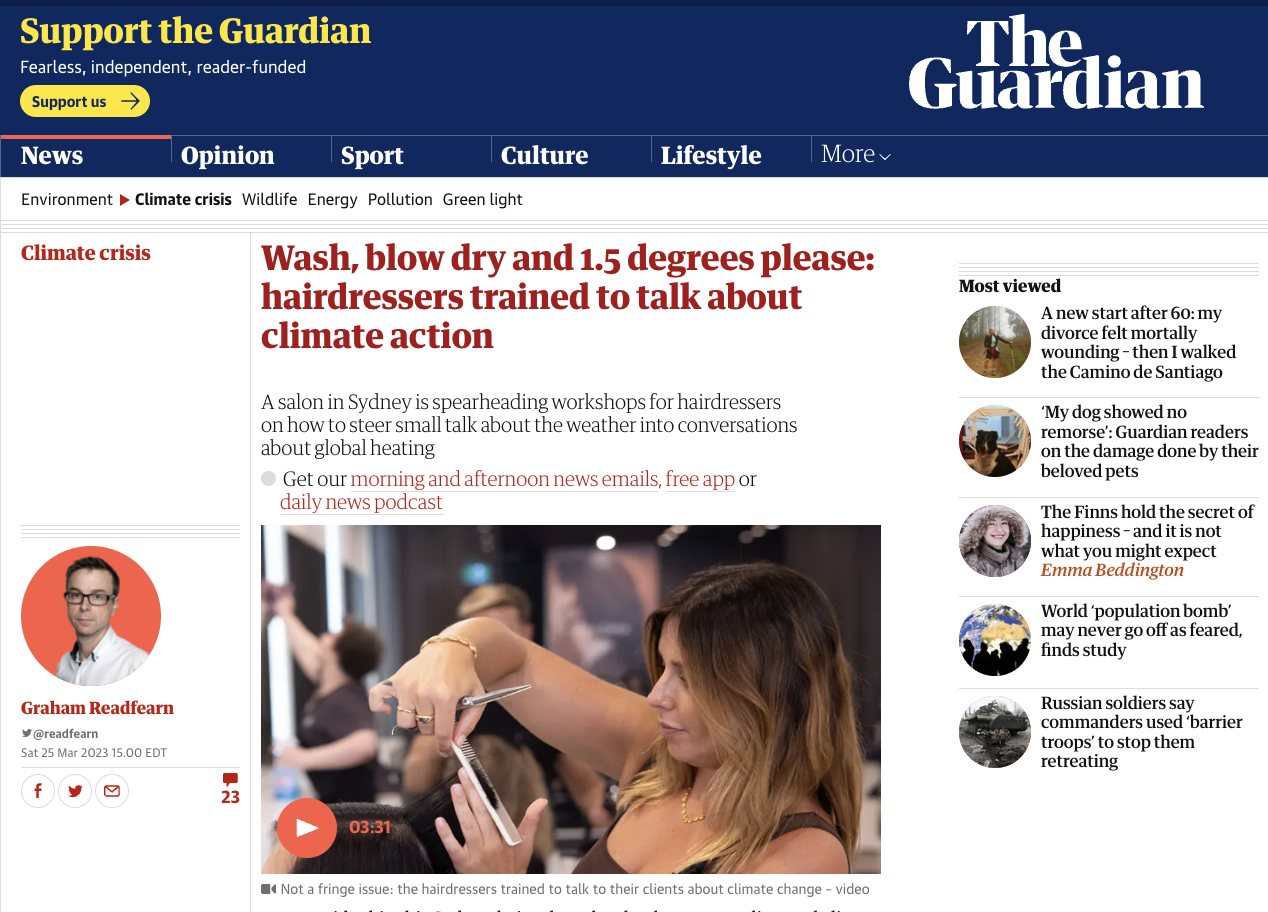Wash Post admits reality: ‘Amid explosive demand, America is running out of power’ – U.S. ‘power grid’ being pushed ‘to the brink. Utilities can’t keep up’ – ‘It is staggering’ – But WaPo frets energy shortage ‘threatens to stifle the transition to cleaner energy’

Washington Post’s is concerned that this power shortage “threatens to stifle the transition to cleaner energy, as utility executives lobby to delay the retirement of fossil fuel plants and bring more online.”
“When you look at the numbers, it is staggering,” said Jason Shaw, chairman of the Georgia Public Service Commission, which regulates electricity. “It makes you scratch your head and wonder how we ended up in this situation.
NBC New York cites professor who links climate change to recent earthquake: Excess rain leads to floods that ‘could result in landslides’ that can ‘lubricate’ faults leading to more earthquakes

Dr. Antonios Marsellos, an associate professor in the Department of Geology, Environment, and Sustainability at Hofstra University, tries to explain. “An earthquake is based on tectonic plates, and New York is sitting on a ‘lazy’ plate, which is good, meaning we do not have so many earthquakes, but there are other things that happen — too much rain or drought,” Dr. Marsellos told NBC New York. The rain can lead to floods that if they go on long enough, could result in landslides. The slides can “lubricate” faults and may be a reason for the increased frequency of quakes, explained Dr. Marsellos.
Jeffrey Park, professor of Earth and Planetary Sciences at Yale University, also thinks that climate change had a hand in the earth moving billions of tons of rocks. “Dr. Park indicated the continuous rise in sea levels can increase the amount of pressure exerted on the Earth’s shelves and coastlines, resulting in mostly scattered and infrequent quakes with long lead times. The positive takeaway is that experts say there is no need to be alarmed and no elevated quake is expected any time soon.”
UK Independent: ‘Climate change is hitting vulnerable Indonesian trans sex workers’ – Media claims ‘extreme weather linked to climate change’ is affecting transgender prostitutes’ ‘income’
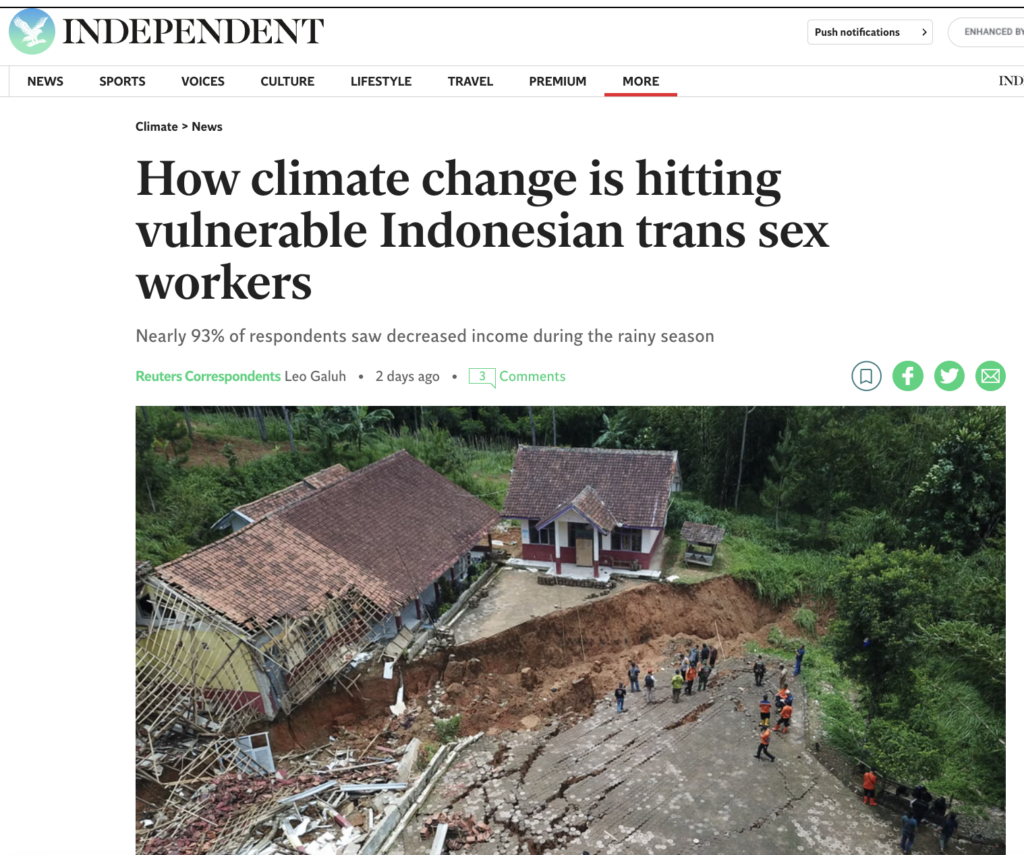

UK Independent via Reuters – April 3, 2024: Joya Patiha, a 43-year-old Indonesian transgender woman, first started to notice that changing weather patterns in the mountain-ringed city of Bandung were affecting her income as a sex worker a decade ago. The rainy season was lasting longer across the West Java province, winds were stronger and in some particularly bad years Patiha lost up to 80% of her earnings. Trans women like Patiha are among the most affected by extreme weather linked to climate change, as well as suffering disproportionately when disasters strike. “No one is coming out during the longer rainy season,” said Patiha. “It is very hard to make money during that unpredictable weather.” …
Indonesia is particularly vulnerable to the effects of climate change, and trans women, who tend to face more stigma and marginalisation than trans men or other LGBTQ+ Indonesians, are also among those hardest hit by extreme weather. …
Arif Budi Darmawan, a researcher at the Bandung-based Resilience Development Initiative said: “Climate change makes the vulnerable even more vulnerable.” … The group’s coordinator Rikky, who asked that his first name only be used, said unpredictable weather also led to “illness, debt, stress, conflicts with local residents, and heightened levels of violence”.
You ‘no longer’ have ‘a choice’! Watch: Kerry’s daughter Vanessa Kerry: ‘We must accept that there is no other way forward than to phase out our reliance on fossil fuels. Simply mitigation and reduction of greenhouse gas emissions — is no longer a choice’
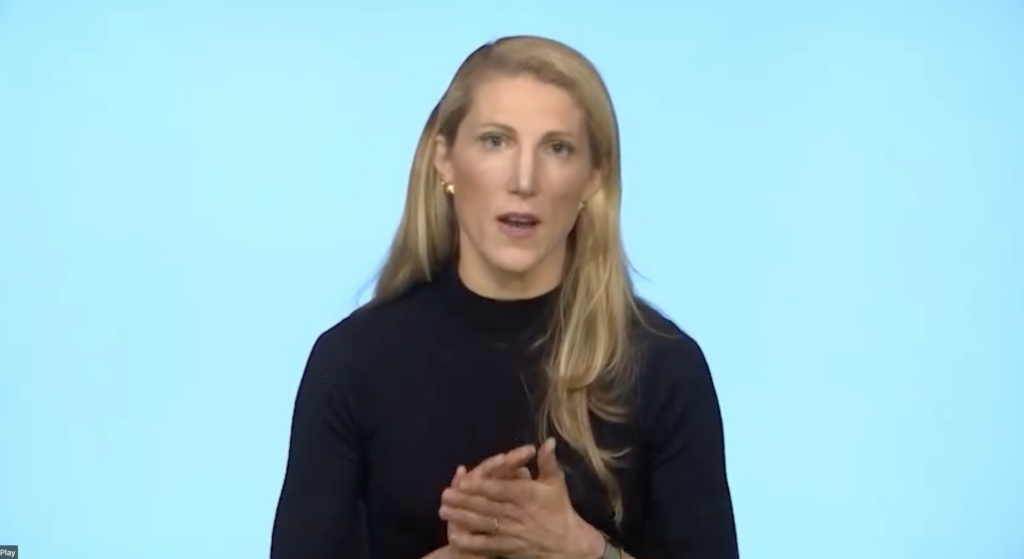
Vanessa Kerry—daughter of jet-setting climate con man, John Kerry—speaking at COP28 in December 2023: "The climate crisis is a health crisis, and it's killing us… We must accept that there is no other way forward than to phase out our reliance on fossil fuels." "A study was… pic.twitter.com/f4F0LGOJ8s — Wide Awake Media (@wideawake_media) February 29, […]
UK Telegraph: Beijing could remotely stop electric cars made in China on UK roads – ‘Could give access to personal data without permission & gridlock cities’

https://www.thetimes.co.uk/article/china-electric-cars-uk-roads-3s69qg6g0 By Fiona Hamilton – Chief Reporter Beijing could gridlock Britain’s roads by remotely stopping electric vehicles made in China, posing a “major security threat”, MPs have been warned. Electric vehicles can potentially be controlled, adjusted and ultimately even stopped, a vulnerability that could be exploited by China if its relationship with the UK badly […]
Watch: ‘Juice’ debunks claims that solar & wind power as ‘green’: To make one wind turbine, ‘we have to extract 900 tons of steel, 2,500 tons of concrete, & 45 tons of non-renewable plastic’
New Paper: ‘Regulators Should Value Nonhuman Animals’ – Seeks ‘to estimate the number of dog-years saved by a regulation’
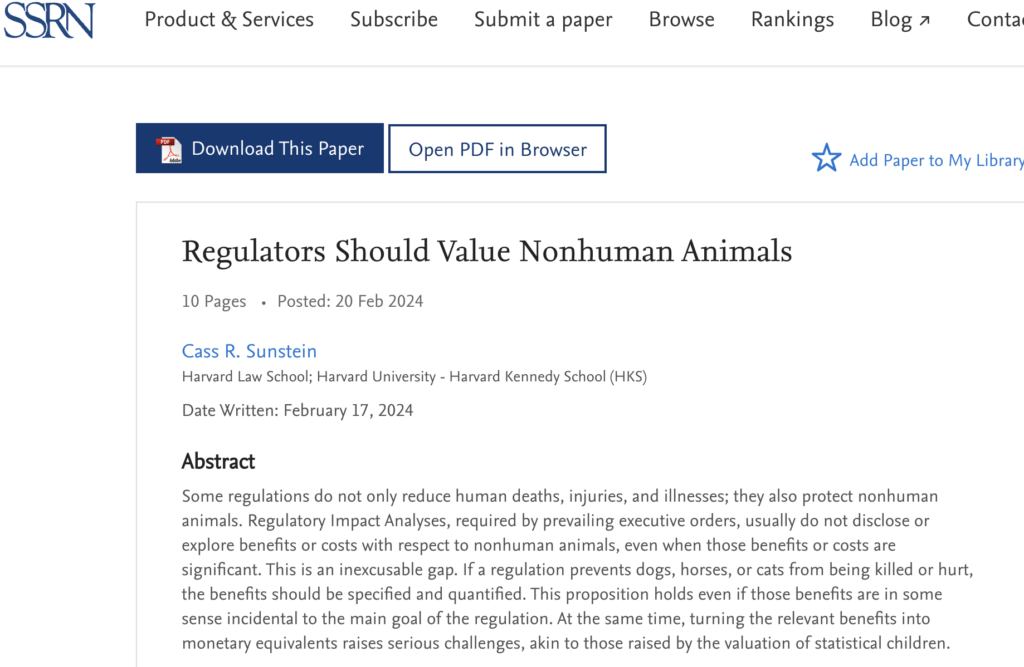
Excerpt: “If a regulation prevents dogs, horses, or cats from being killed or hurt, the benefits should be specified and quantified. .. .Outside of federal rulemaking, an academic study finds that a Value of a Statistical Dog Life is $10,000. If the goal is to come up with some number, it would be an advance to use that one, perhaps as a plausible lower bound. But there is a natural objection. Is the life of a dog plausibly 1/1,000 that of the life of a person? … At a minimum, agencies should attempt to quantify benefits and costs to nonhuman animals even if they cannot monetize them. With the help of contingent valuation studies, they should also attempt to monetize those harms.”
Now they are coming for your — HAIR?! Wash Post touts ‘recycling human hair…into clothes’ as a ‘climate solution’ – ‘Weaving with human hair…keeps hair out of landfills & incinerators, where it would release greenhouse gases’





